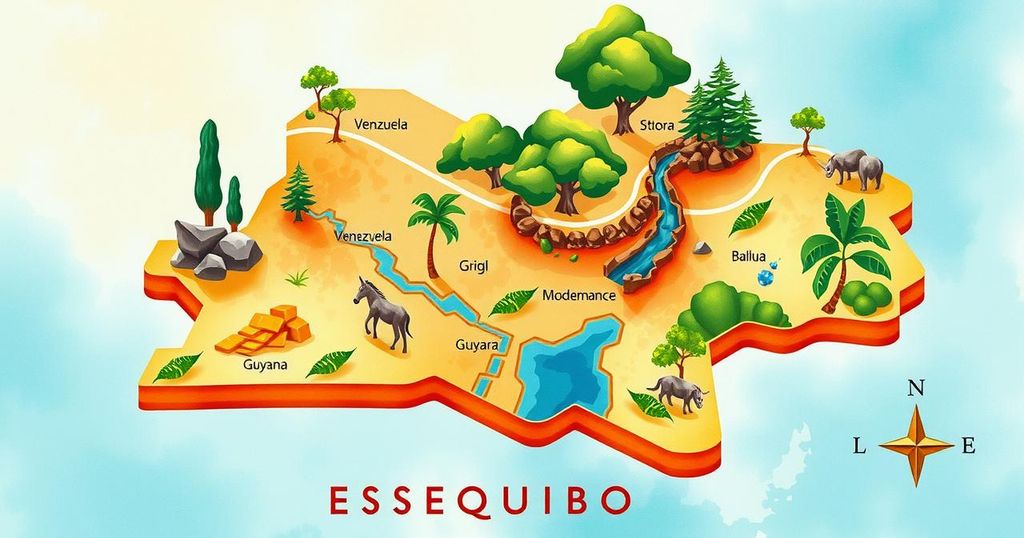Venezuela Dismisses UN Court Ruling on Disputed Essequibo Elections

Venezuela has rejected a UN ruling that ordered it not to hold elections in the disputed Essequibo region, which it claims. The government emphasizes that international law does not allow the ICJ to interfere in domestic matters. Tensions with Guyana have risen, particularly over resource control and territorial claims.
Venezuela’s government has formally rejected a ruling by the United Nations’ International Court of Justice (ICJ), which instructed the country not to hold elections related to a disputed resource-rich region claimed by both Venezuela and Guyana. President Nicolás Maduro’s administration issued a strong statement, emphasizing its historical stance of dismissing the court’s jurisdiction in matters it considers domestic. Moreover, they argue that the ICJ lacks authority under international law to interfere with their electoral processes.
This ruling from the court, located in The Hague, came just after Guyana requested the intervention, alleging that Venezuela was in violation of a previous ruling by planning elections on May 25 for leaders to govern the Essequibo region. The Essequibo territory makes up a significant part of Guyana, containing valuable resources and a sizable population. Guyana contends that these elections could lead to “irreparable harm” in that region.
Venezuela’s position, as stated, underscores the Essequibo as an inalienable aspect of their territory, a view steeped in historical claims dating back to the Spanish colonial period. The government declared, “its defense is a historical, constitutional, and a moral mandate” that all Venezuelans should uphold. Maduro’s administration asserts no international pressure can sway its stance on the matter.
The Essequibo, rich in gold and timber and situated near lucrative offshore oil deposits, represents about two-thirds of Guyana’s land. Venezuela traditionally asserts that the area fell within its borders before an 1899 arbitration, which settled the boundary dispute in favor of British Guiana, now Guyana. Although this arbitration was intended to be conclusive, Venezuela questions its validity, citing a 1966 agreement designed to settle disputes as nullifying the earlier decision.
As tensions escalate, the ICJ is still examining the case. Recently, Maduro threatened to annex the Essequibo region post-referendum, asking citizens if they wish to see it incorporated into Venezuela. This past December, regional leaders, alongside representatives from Brazil and the UN, convened an emergency summit where both countries agreed to avoid using military force.
To add to the complications, Guyana’s president, Irfaan Ali, recently condemned a reported incursion by Venezuelan military forces in disputed waters where ExxonMobil is developing oil resources. Venezuela’s vice-president, Delcy Rodríguez, countered these claims, labeling the oil activities as “illegal”. Amidst these growing tensions, Venezuelan voters are preparing for elections later this month to choose new governors and lawmakers.
In summary, Venezuela has rejected a UN court ruling that seeks to prevent elections concerning the Essequibo region, which is claimed by both Venezuela and Guyana. The government maintains its position against the court’s authority, arguing that the matter is strictly within its domestic affairs. The situation remains tense as both countries grapple with territorial disputes and escalating military assertions. Observers continue to monitor how these political and legal friction points will unfold while Venezuelan voters approach their upcoming elections.
Original Source: www.theguardian.com







